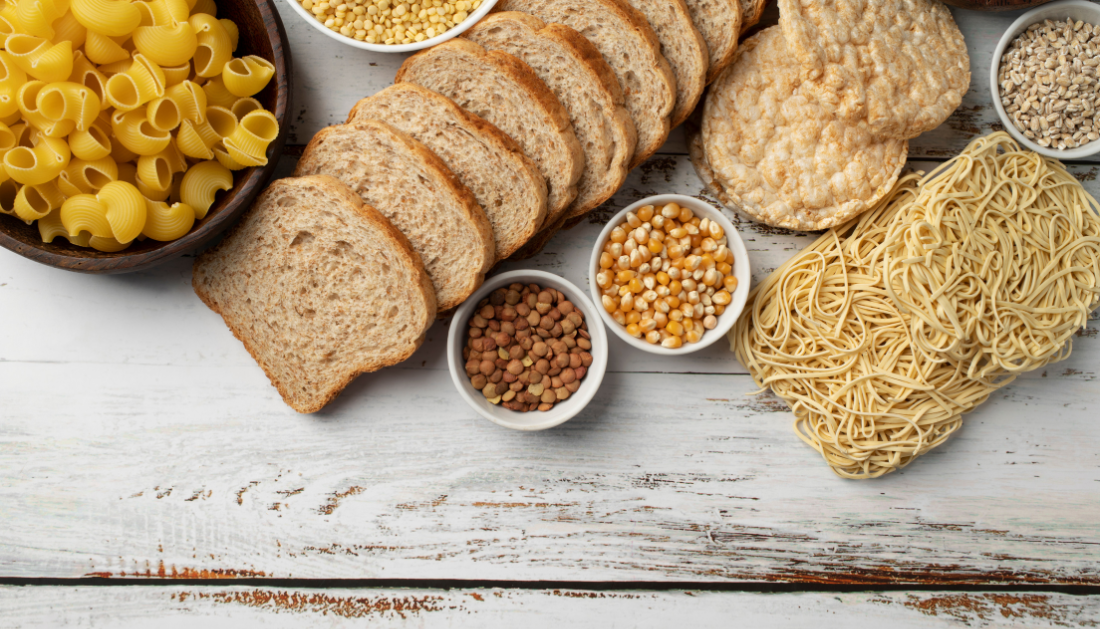

A recent study examining the connection between total carbohydrate intake and risk of gout was published in Nutrients. Additionally, they looked into mediating biomarkers and the relationship between carbohydrate consumption and genetic susceptibility.
Context
Elevated blood uric acid, urate saturation, and the deposition of monosodium urate crystals in the joints are the hallmarks of gout, an inflammatory arthritic condition. Chronic conditions like metabolic syndrome, venous thromboembolism, and cardiovascular disease are linked to it. Diet has a major role in the genesis of gout.
Although there is conflicting evidence about the link between carbohydrate intake and gout risk, low-carb weight-loss regimens have the potential to reduce urate levels. Certain forms of carbohydrates, such fructose, fruit juice, and drinks with added sugar, may increase the chance of developing this condition, according to research. There is not enough research on how diet and genetics affect gout risk. Studies that look at the relationship between bad eating habits and genetic predisposition to gout risk show that it has a significant additive interaction effect.
About the Study
In this study, the effects of individual genetic sensitivity together with the quantity, type, and source of carbohydrates were examined in relation to the risk of developing gout. They also investigated biomarkers in blood and urine that influence the relationship between consumption of carbohydrates and gout risk.
187,387 UK Biobank participants between the ages of 40 and 69 who finished one or more dietary evaluations were included in the study. Those with gout or genetic kinship, as well as those lacking sufficient information on confounders, dietary assessments, and biomarkers, were excluded. From 2006 to 2010, experts in the field took measurements of height and weight as well as serum and urine samples. Digital self-reported questionnaires yielded information on lifestyle habits and sociodemographic traits.
The Oxford online 24-hour dietary instrument collected information on the consumption of 32 beverages and 206 items between 2009 and 2012. Information on nutritional content was obtained from the food composition tables of the United Kingdom Nutrient Databank. The categories of carbohydrates that were examined were starch, fiber, and total sugars, which were separated into added and free sugars.
Using the International Classification of Diseases, Ninth Revision (ICD-9) and ICD-10 classifications, the researchers were able to determine gout. Following participant genotyping, 33 genetic susceptibility loci with genome-wide statistical significance were used to generate the GRS, or gout genetic risk scores. They assessed the combined impact of genetic predisposition and carbohydrate diet on the risk of gout.
The hazard ratios (HR) for the correlations between the risk of developing gout and the consumption of carbohydrates were computed using Cox proportional hazard regression models, and the dose-response linkages between the two variables were assessed using restricted cubic splines.
Gender, age, ethnicity, physical activity, body mass index (BMI), income, education, smoking status, and alcohol use were among the study’s confounders. Researchers eliminated people who completed a single diet assessment, those who were diagnosed with gout before the last 24-hour dietary assessment or within two years of follow-up, and those who consumed excessive amounts of calories from their sensitivity analysis.
They limited the analysis to people on normal diets, controlling for cardiovascular disease, diabetes, and hypertension, and taking diuretics, anti-hyperlipidemic, antidiabetic, and anti-hypertensive drugs.
In summary
The study discovered that while free sugars had the opposite effect, carbs prevent gout. People should eat meals low in added sugars and rich in beneficial carbs to reduce their risk of developing gout. It is best to employ stratified management strategies, especially for people who are very genetically susceptible. The burden of gout on society may be lessened with a comprehensive strategy that includes eating more carbohydrates, plant-based foods, and upholding healthy lifestyles that include abstaining from smoking, drinking in moderation, and getting regular exercise.
For more information: Dietary Carbohydrates, Genetic Susceptibility, and Gout Risk: A Prospective Cohort Study in the UK, Nutrients, https://doi.org/10.3390/nu16172883
more recommended stories
 Advanced Prostate Cancer and Serial ctDNA Analysis
Advanced Prostate Cancer and Serial ctDNA AnalysisKey Takeaways Serial liquid biopsies using.
 Tuberculosis Breakthrough with Experimental Antibiotics
Tuberculosis Breakthrough with Experimental AntibioticsKey Takeaways Experimental antibiotics disrupt a.
 National Healthy Longevity Trial Receives Federal Support
National Healthy Longevity Trial Receives Federal SupportKey Summary Up to $38 million.
 Vascular Health Linked to Early Alzheimer’s Brain Changes
Vascular Health Linked to Early Alzheimer’s Brain ChangesKey Takeaways Brain vascular health is.
 Red Blood Cells Improve Glucose Tolerance Under Hypoxia
Red Blood Cells Improve Glucose Tolerance Under HypoxiaKey Takeaways for Clinicians Chronic hypoxia.
 Pediatric Crohn’s Disease Microbial Signature Identified
Pediatric Crohn’s Disease Microbial Signature IdentifiedKey Points at a Glance NYU.
 High-Fat Diets Cause Damage to Metabolic Health
High-Fat Diets Cause Damage to Metabolic HealthKey Points Takeaways High-fat and ketogenic.
 Can Too Many Antioxidants Harm Future Offspring?
Can Too Many Antioxidants Harm Future Offspring?Key Takeaways High-dose antioxidant supplementation in.
 Human Antibody Drug Response Prediction Gets an Upgrade
Human Antibody Drug Response Prediction Gets an UpgradeKey Takeaways A new humanized antibody.
 Dietary Melatonin Linked to Depression Risk: New Study
Dietary Melatonin Linked to Depression Risk: New StudyKey Summary Cross-sectional analysis of 8,320.

Leave a Comment